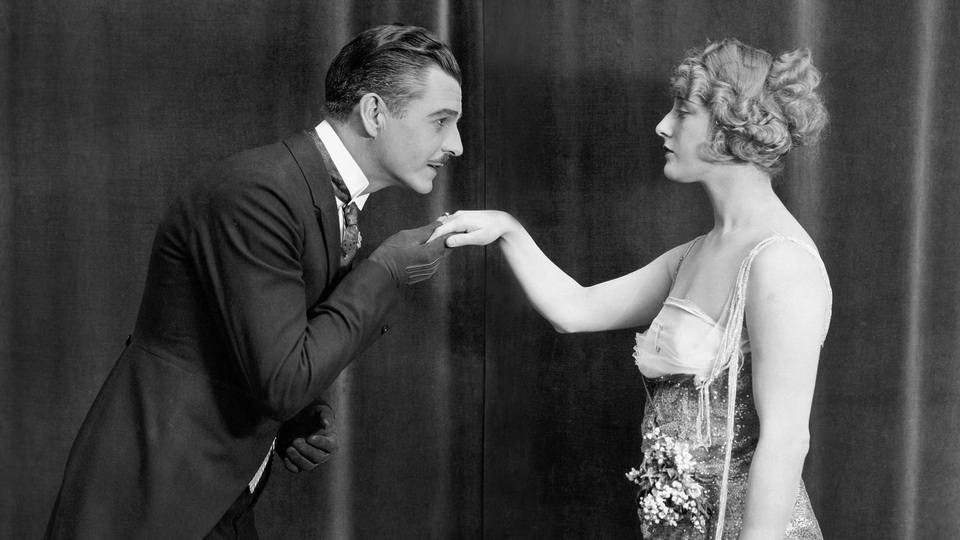“You can also lower a girl’s social value in relation to yours with quick lines…” – Jesse Charger, SeductionScience.com
“When you touch a girl and how you touch a girl is SO IMPORTANT for creating a sexual tension that will make her incredibly horny, very fast. Touch her arms, stomach, hands, legs, face… everywhere that a ‘friend’ wouldn’t really touch.” – Richard La Ruina, PUATraining.com
“If, during and by the end of A3, the target is isolated from her set, then you can go for the kiss close at the end of A3. A very effective way of doing this is to use an extension of A3 to escalate kino [touching], thus using the bait/hook/reel/release principle.” – SeductionBase.com
YOU DON’T NEED TO IDENTIFY AS A FEMINIST to feel disturbed by these quotes, which are representative of the majority of what you’ll find on blogs and forums dedicated to pick-up artistry (PUA). The online “seduction community” is a pretty dark place for anyone who sees women as more than sexually-programmable “targets,” and for whom a list of studied tactics reads more like manipulation than flirtation.
Critiques of PUA start at the very foundation: its tactics are founded on specious evolutionary psychology. The “logic” goes: women are more wary of sex because they might get pregnant, and they therefore need an emotional connection to the man; this ensures her that “when she is pregnant back in the cave [he] will stick around to bring her [his] fresh kills from the hunt,” according to popular PUA pro Mystery. A big part of PUA is learning how to manufacture that sense of emotional connection (called “pair bonding”) in a woman, and how to “bait [her] into working for your affections.” And then, sex happens.
This biological interpretation of human sexuality rubs a lot of people the wrong way (myself included). It leads to the idea that there are cheat codes that will unlock access to a woman’s vagina. Sexual interaction become a “game,” or even a battle, and the tactics of PUA become the seducer’s weapons. Women are “targets,” members of “sets” (groups of women) to be “isolated,” to be “opened” (approached) and “closed” (the obtaining of a desired result, such as a kiss or sex) at will. Perhaps most problematic is that the seduction community doesn’t evaluate those supposed innate, biological predispositions and the tactics that play on them from an ethical standpoint. Assuming that these predispositions are natural, the PUA jumps to the second conclusion that they should be taken advantage of and the tactics that play on them encouraged. A “whatever works” mentality results.
Psychological and emotional manipulation are far from the worst aspects of PUA, though. The “whatever works” mentality of the community raises concerns that some of its methods threaten to discount consent. “Kino” touching – explained in the above quote by La Ruina – is meant to be initiated with women a man has just met. While PUA generally (but not always) instructs men not to engage in intense seduction or aggressive touching unless they are sure the “target” is interested, this is mainly based on non-verbal cues, which can easily be misinterpreted. The lines of consent, which should be as bold as bold can be, get hazy in the seduction community.
It’s therefore difficult to imagine a feminist defending PUA. And I don’t think it’s possible to. But Hugh Ristik, writing for Feminist Critics, enumerates pieces of advice men encounter in the PUA world that are actually good for women: not chasing after uninterested women; being direct and clear about one’s intentions; being sure she’s interested before attempting to seduce; acquiring basic social skills for comfortable interactions. Ristik refers to these as “ethical” aspects of PUA.
I think Ristik’s points are worth noting. However, the underlying principle of the advice he mentions is “because it works,” not respect for women. And this is no small difference. Lacking a core of respect, tactics like negging — in which a man insults a woman perceived by the seducer to be of higher social value than him in order to raise his value in relation to hers — and worse, like uninvited physical contact, are able to thrive in the community. So, while some positive results for women may occur from certain PUA methods at times, I don’t agree that Ristik’s examples show an ethical side to the seduction community.
Dr. NerdLove, self-proclaimed nerd and giver of relationship advice, calls the seduction community’s hyper-focus on sex its greatest sin, bought at the cost of emotional connections, respect, and intimacy between human beings. “Women go from people to points; the classic 10-scale is the metric by which we judge ourselves, and the greater the challenge, the greater the esteem.”
For all that, Dr. NerdLove writes in partial defense of PUA, as a former practitioner himself. His story is similar to that of many men attracted to the community: he lacked social skills and had no idea how to interact with the opposite sex. While PUA brought him “success” – he got laid – its limited focus on that goal left him miserable. But he can’t deny that something very positive came out of it. He learned that sexual chemistry is not the result of pure fate. The idea “that you can take a more active hand in your love life and make it happen” provided him with a sense of agency.
What NerdLove wants to emphasize is that PUA teaches men that social skills (though limited in this community, for the most part, to those focused on acquiring sex) can be learned and developed. PUA advises men on the development of confidence and charisma, on avoiding uncomfortable displays of insecurity, on learning how to flirt – which really are useful things to know. NerdLove also notes that, for men, the seduction community is just about the only place to find advice around sex, so we ought not dismiss the finer points, however few they are, of PUA.
Useful though they are, those finer points don’t redeem PUA because of its problematic theoretical underpinnings — and, in some cases, the fair bit of misogyny that goes hand-in-hand with some of these tactics employed. But it’s important to acknowledge these points so they can be rooted out, divorced from a reductionist view of human sexuality, and resituated on the founding principles of respect, human agency, and values around sex. It’s a shame that dating and sexual advice is less abundant for men. They deserve an alternative to PUA that focuses on becoming more socially and emotionally intelligent. And – why not? – getting laid.

















